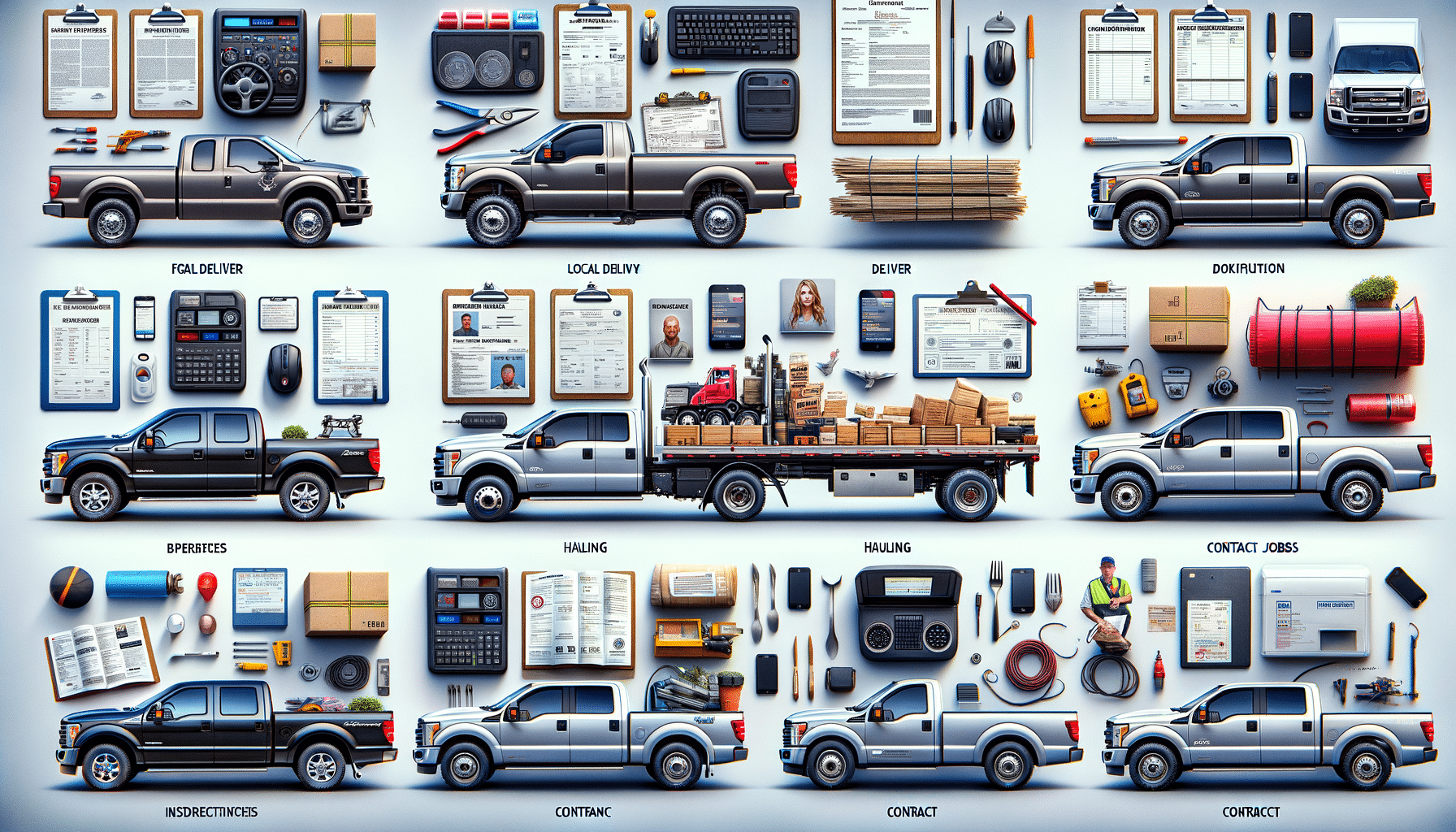
Driving Opportunities: What to Know About Pickup Truck Driver Jobs
Roles of Pickup Truck Drivers in Various Industries
Pickup truck drivers are essential in a multitude of industries, providing crucial services that keep businesses running smoothly. These drivers are often seen transporting goods, equipment, and materials, making them indispensable in sectors such as retail, construction, and logistics. In the retail industry, for example, pickup truck drivers are responsible for delivering products from warehouses to stores or directly to customers. This not only ensures that shelves are stocked but also that customers receive their purchases promptly.
In the construction industry, pickup truck drivers are often tasked with transporting tools, machinery, and building materials to job sites. This role is vital for maintaining project timelines and ensuring that construction crews have the necessary resources to perform their work efficiently. Additionally, the logistics sector relies heavily on pickup truck drivers to manage last-mile deliveries, which involve transporting goods from distribution centers to their final destinations. This is particularly important in urban areas, where larger vehicles may struggle to navigate narrow streets and congested traffic.
Overall, pickup truck drivers contribute significantly to the success of various industries by ensuring that goods and materials are delivered safely and on time. Their ability to adapt to different environments and handle a variety of cargo makes them an invaluable asset to any business.
Common Job Types for Pickup Truck Drivers
Pickup truck drivers have access to a wide range of job opportunities, each offering unique benefits and challenges. One common job type is local delivery, where drivers transport goods within a specific geographic area. This role is ideal for individuals who prefer consistent routes and schedules, as it often involves making regular deliveries to the same locations. Local delivery drivers are typically employed by retail businesses, courier services, or food delivery companies.
Another popular option is hauling, which involves transporting larger loads over longer distances. Hauling jobs may require drivers to deliver construction materials, agricultural products, or even livestock. These positions often demand greater physical strength and endurance, as well as the ability to operate specialized equipment such as trailers or flatbeds. Hauling jobs can be found in industries like agriculture, construction, and waste management.
Contract-based gigs offer pickup truck drivers the flexibility to choose their assignments and work schedules. These gigs can range from short-term projects, such as moving furniture or delivering event equipment, to long-term contracts with service providers. Contract-based work allows drivers to diversify their income streams and gain experience in different sectors. However, it also requires strong time management skills and the ability to market oneself effectively to potential clients.
In summary, pickup truck drivers can explore various job types, each catering to different preferences and skill sets. Whether seeking stability, physical challenges, or flexibility, there are opportunities available to suit every driver’s needs.
Licensing, Insurance, and Qualifications for Pickup Truck Drivers
Before embarking on a career as a pickup truck driver, it is important to understand the licensing, insurance, and qualification requirements associated with the job. While a standard driver’s license is typically sufficient for most pickup truck driving positions, some roles may require additional certifications or endorsements. For instance, drivers transporting hazardous materials or operating larger vehicles may need a commercial driver’s license (CDL) or specific endorsements.
Insurance is another critical consideration for pickup truck drivers. Employers often provide coverage for company-owned vehicles, but independent drivers using their own trucks must secure appropriate insurance policies. This typically includes liability coverage, which protects against damages or injuries caused while on the job, and comprehensive coverage, which safeguards the vehicle against theft, vandalism, or natural disasters.
Basic qualifications for pickup truck driving jobs generally include a clean driving record, good physical health, and the ability to lift and carry heavy objects. Some employers may also require previous experience in a similar role or familiarity with specific equipment or software used for route planning and delivery tracking.
Overall, understanding the licensing, insurance, and qualification requirements is essential for anyone considering a career as a pickup truck driver. By ensuring compliance with these standards, drivers can protect themselves and their employers while maximizing their job opportunities.


